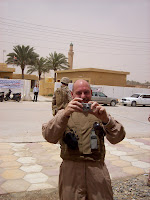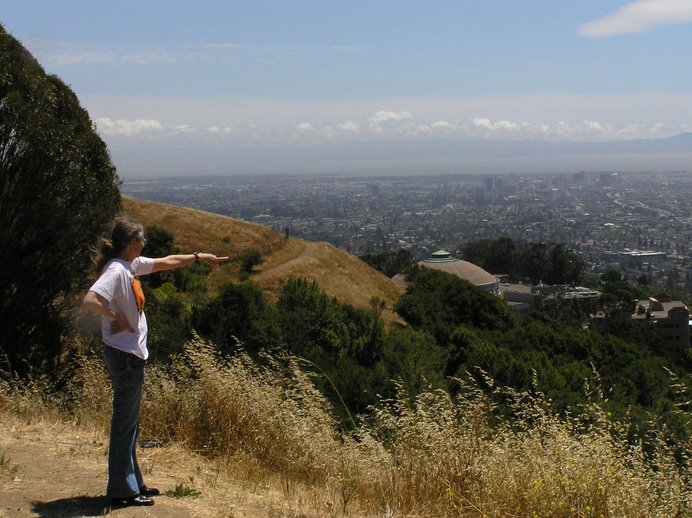






Camping near Yosemite in the freezing rain while looking for gold: One Love, Part 2
After coming back from Iraq, all I wanted to do was to vegetate -- and what better way to do that than to go camping! But after spending almost a month in the 95-degree heat, I had forgotten that northern California is no Middle Eastern desert. It was freaking COLD up near Yosemite.
Sitting around in a Quonset hut that serves as Al Asad airbase's airport in western Iraq and waiting for my flight to TQ, I got to talking with a construction contractor on his way back home to the States.
"I've been here for four years now, overseeing a construction crew in Fallugah, but about two months ago it suddenly hit me -- that I was D-O-N-E here. Done. This is it. I've had it. I'm finished. I just want to go home." I guess at some point, even the huge sums of money that some contractors make per month stops being the overruling factor. For this man, four years was enough.
"Where are you from?" I asked out of idle curiosity, trying to pass the time between flight announcements and flight cancellation announcements due to sandstorms.
"I'm from Montana." Then he started telling me about what he had been doing back home before signing on for Iraq. "I'm good with my hands, I've been doing carpentry all my life. I can fix ANYTHING." And he had a small ranch back home too. "And in my spare time, I go pan for gold."
I want to pan for gold!
"First you've got to learn how to tell real gold from fool's gold. If it has geometric angles and corners and flat sides, then it's fool's gold. Real gold is all worn away at the corners, like stones that have been tumbled around in riverbeds for thousands of years."
At almost one thousand dollars an ounce, a piece of gold shaped like a stone works for me.
"Sometimes you can find nuggets as big as your fist," said the contractor, "but you always have to prospect where you can see black sand. If you don't see any black sand then there's no gold. And you need a pan, a vial to put your gold in and some tweezers." I guess he was assuming that I was going to find little tiny pieces of gold. If I found whole ROCKS made of gold, then I wouldn't need the tweezers. Or the vial. And probably not even the pan.
So after I flew home from Iraq, my daughter Ashley and I set off to go camping on the Tuolumne River with dollar signs in our eyes. "Pan for gold. Get rich." That was the plan.
But first we had to stop by the outlet mall stores in Tracy, just off the Interstate that bisects the Central Valley -- and two freeway exits down from In 'n' Out Burgers (they actually make their own fries right there on the premises!) Then we stopped at the big Hersey's chocolate factory in Oakdale but it was closed. Then we bought some cherries at a roadside stand and bought some gas -- $4.07 a gallon, don't get me started on that one -- and root beer floats in Groveland.
And then it started to rain. And it poured. And the temperature dropped. It looked like camping was going to suck eggs. And it did. All that night and the next day we just huddled around the campfire. And the day after that...we wimped out and went home.
"Mom, you look terrible," said Ashley. "Want to borrow my Bob Marley sweatshirt?"
Perhaps you are thinking that YOU might have a loving and caring daughter? Ha! Would YOUR daughter give up a Bob Marley sweatshirt for YOU? In the middle of a freezing rainy night? I think not!
PS: We did manage to get in approximately a half-hour's worth of panning for gold. Forget it. That guy from Montana was wrong. There was NO gold in them thar hills -- nothing but cold wet black sand.
PPS: The one thing that this camping trip taught me (aside from the lesson that there is "No Free Gold") was that if we ever have another huge depression or global cooling or ice age or anything, I'm gonna be in big trouble. I'm screwed. Without heat and electricity -- not to mention root beer floats -- I'd be on death's doorstep within hours.
How did those old-timey pioneer women ever manage to survive?




































